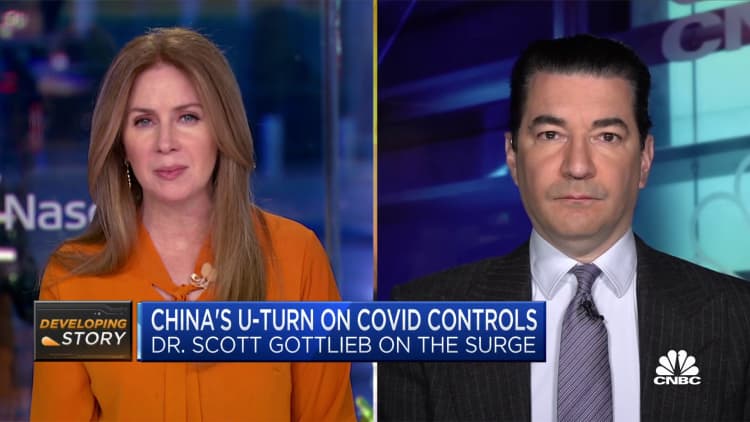[the_ad id="21475"]
[ad_1]
Chuiyangliu hospital, pictured in January 2023 in Beijing, in the last few years finished renovations that allowed for a six-fold increase in daily patents to 5,000 a day, according to official estimates.
Yin Hon Chow | CNBC
BEIJING — At the top of the shopping list for anyone in their late 20s or older in China is health, sports and wellness. That’s according to an Oliver Wyman survey late last year, as China finally started to end its Covid controls.
For people planning to spend more on that health category, 47% said in December they intend to spend more on health insurance. That’s up from 32% in October, the report said.
“There’s a much higher health concern after this latest wave, but after the entire pandemic the health consciousness of the Chinese consumer has increased a lot,” said Kenneth Chow, principal at Oliver Wyman.
Even for people in their early twenties, health is only second to their plans to spend more on dining, the survey found. The study ranked the categories by the percentage of respondents who said they intended to spend more on each item, minus the percentage of respondents planning to spend less.
The pandemic pressured hospitals around the world. But China’s situation — especially since Covid cases surged in December — revealed the gap between the local public health system and the country’s global economic heft as second only to the U.S.
The U.S. ranks first in the world by health expenditure per person, at $10,921 in 2019, according to the World Bank. For China, the same figure was $535, similar to that of Mexico.
Households in China also pay for a higher share of their health care — 35.2% versus 11.3% for Americans, World Bank data showed.
Extreme pressure on public hospitals — including lack of capacity — drove many new patients for Covid and non-Covid care to facilities operated by United Family Healthcare in China, said founder Roberta Lipson. She said her company has 11 international-standard hospitals and more than 20 clinics in major Chinese cities.
“Growth in awareness of the importance of assured access to health care, as well as UFH as an alternative provider, is driving increased demand for our services from patients that can afford self-pay care,” she said.
“This experience is also driving increased interest in commercial health insurance which could cover access to premium private providers,” Lipson said. “We are helping patients to understand the benefits of commercial insurance. This will have a lasting impact…
Click Here to Read the Full Original Article at Top News and Analysis (pro)…
[ad_2]
[the_ad id="21476"]
